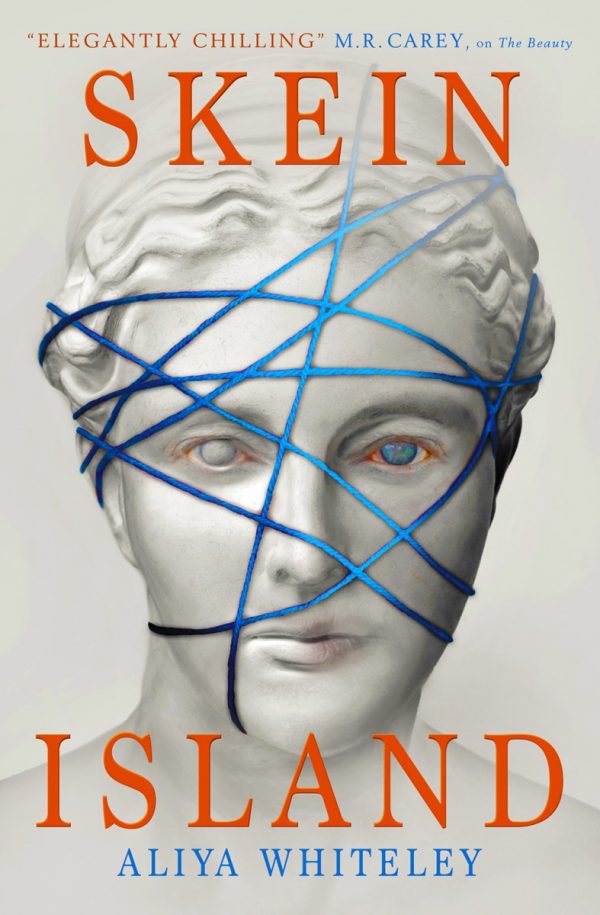Michelle Herbert reviews Skein Island by Aliya Whiteley…
Marianne’s mother abandoned her and her father when she was 16 years old after a trip to Skein Island. The novel starts 11 years after this event, and Marianne is now married to David, who seems to be boring and predictable. Although David sees himself as the strong one in their relationship. Marianne has a very normal life, she works in a library and immerses herself in stories. Marianne’s life is then abruptly changed when she receives an unsolicited invite to Skein Island and is then attacked when closing the library for the night.
Marianne decides there and then to leave for Skein Island for the relative safety of an island where no men are allowed. Skein Island is a retreat for women, where the only cost of staying is to write a declaration about their past. Once Marianne arrives she is placed in a bungalow with two other women, Kay and Rebecca who couldn’t be more different from each other. Kay talks a lot, where Rebecca is more considered.
The book switches between Marianne on the island, trying to find out the truth about her mother’s disappearance, while David is left at home wondering why Marianne didn’t act the way he thought she should have. David believes that he should be responsible for Marianne, as he is the man in the relationship and that his role is that of protector. David has very simplified thoughts on what he thinks a woman should be. Their lives are intertwined, but their stories are no longer heading in the same direction.
Marianne’s father also becomes a player in this story; he spends most of his time in his local pub, playing a game that is for men only. The game contains four coloured cubes, which also match the colours seen on Skein Island. These colours are symbols of four different types of men: Red = Heroes, Blue =Villains, Yellow = Sidekicks and Green = Wise men (sages). David and Marianne’s father connect once David is initiated into the game.
Marianne is on her own quest as she delves deeper into the history of Skein Island and to work out how this relates to what happened to her mother. This segues into David becoming the hero he always thought he should be, as a protector of women. Marianne as a big reader of stories knows that change needs to happen, she realises that the narrative has to change so that women become proactive, rather than continuing to be the prizes and possessions in male stories.
Skein Island is a feminist narrative that can be hard to swallow, not because the book is hard to read, but because it is so well written that it hits you in the face with its truth. It focuses on the power of stories, and what it really means to take charge of your own. This is a contained story that echoes into our world, with heroes and villains that are always men. Boys from a young age are told that their stories are more important than that of girls and women. There is so much story in this novel, which is surprising for a book that runs to less than 300 pages, and this is definitely something that will be worth reading again.
Michelle Herbert












